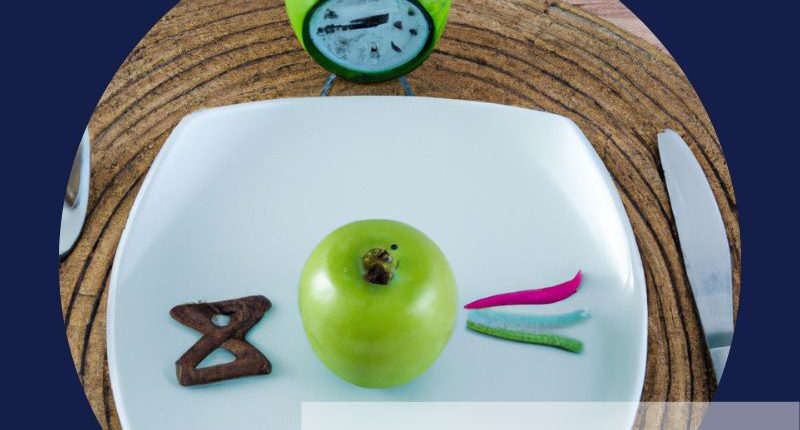On meditation diet and mindfulness, what you eat can have a big impact on your practice. Just as your physical health is affected by what you eat, your mental and emotional well-being is affected by what you eat.
The ancient practice of yoga recommends that yogis eat a vegetarian diet, which is thought to help promote feelings of peace and compassion. While you don’t need to be a vegetarian to meditate mindfully, eating vegetarian meals can be a way to connect with your practice on a deeper level.
In addition to eating more mindfully, pay attention to when you’re eating. Skipping meals or waiting too long between meals can lead to feelings of irritability and distraction during your meditation session. Eating regular meals at regular times will help keep your energy levels stable so that you can focus more easily on your breath and mantra.
What Mindful Eating Entails
Our eating habits tend to be mindless, where we shovel food into our mouths without really savoring the taste or thinking about it. This can lead to overeating and poor choices when it comes to food. The better we are able to control our eating habits, the better our health will be, and eating will be more enjoyable. Some tips to go with
- Take your time to chew your food slowly and savor the flavor.
- Eat at the right time don’t wait until you’re starving.
- Choose healthy foods void of processed, high-sugar, or fatty foods
- Listen to your body to know when to stop eating.
Meditation Diet: What to Eat Before Meditation?
When it comes to preparing for meditation, what you eat can be just as important as what you don’t eat. Just as certain foods can give you the energy boost you need to get through your day, others can help to relax and focus your mind in preparation for meditation.
Here are a few suggestions of what to eat before meditation:
1. Fruits and vegetables – Fruits and vegetables are packed with nutrients that are essential for maintaining a healthy body and mind. Eating a few pieces of fruit or a small salad before meditating can help to clear your mind and allow you to focus on your practice.
2. Whole grains – Whole grains like oats, quinoa, and brown rice contain complex carbohydrates that provide sustained energy throughout the day. Eating a small portion of whole grains before meditating can help to keep your energy levels up while you’re trying to relax your mind.
3. Nuts and seeds – source – Nuts and seeds are rich in protein, healthy fats, and essential vitamins and minerals. Adding a handful of nuts or seeds to your diet each day can help improve your overall health and well-being. When eaten before meditation, they can also help to keeping your mind focused on the present moment.
Benefits of Eating Healthy Before Meditation
Eating healthy foods, helps your body be better able to absorb the nutrients it needs to function properly. Ingesting a nutritious diet provides your body with the energy it needs to power through a strenuous meditation session. Healthy eating also helps to improve your focus and concentration during meditation.
There are many different benefits that come from eating healthy before you meditate. For one, doing so can help improve your physical health overall. Eating a nutritious diet helps to ensure that your body is getting the vitamins and minerals it needs to function properly. This in turn can lead to increased energy levels, improved mental clarity, and enhanced physical well-being.
Additionally, eating healthy before you meditate can also help improve your mental and emotional state. When you nourish your body with healthy foods, you are providing yourself with the tools you need to manage stress and anxiety more effectively. Eating a balanced diet can also help to improve your mood and reduce feelings of depression or irritability.
Ultimately, the decision of whether or not to eat before you meditate is a personal one. However, if you are looking to enhance your practice and experience all the benefits that come with it, then eating healthy beforehand is definitely something worth considering!
You may like | Health Benefits Of Goron Tula

7 Mindful Eating Habits To Enhance Your Meditation Practice
When it comes to eating, we often rush through our meals without really paying attention to what we’re putting into our bodies. We mindlessly munch on whatever is convenient, without considering how it will affect our health or state of mind. But if you want to get the most out of your meditation practice, it’s important to be more mindful about what you eat. Here are some mindful eating habits that can enhance your meditation practice:
Eat Slowly and Chew Thoroughly
If you want to be more present during your meals, it’s important to slow down and savor each bite. Put down your fork in between bites, and take the time to chew your food thoroughly. This will help you to pay more attention to the taste, texture, and smell of your food, which can be a very calming and satisfying experience.
Listen to Your Body
Tune in to your body’s cues when you’re eating. Are you actually hungry, or are you just eating because it’s mealtime? If you’re not truly hungry, there’s no need to force yourself to eat. And when you are hungry, listen to what your body is craving – there’s a reason why you have those cravings! – and try to satisfy them with healthy foods.
Be Present With Your Food
When you eat mindfully, you savor each bite and chew slowly to fully enjoy the flavor and texture of your food. This also allows your body to better absorb the nutrients. Make it a point to put down your utensils in between bites, and really focus on the taste, smell, and feel of what you’re eating. You may even want to close your eyes to heighten your senses.
Know the Difference Between Hunger and Cravings
When you’re meditating, it’s important to be aware of your body and what it’s telling you. This includes being able to distinguish between hunger and cravings. Hunger is a physical sensation that occurs when your body needs food. Cravings, on the other hand, are usually mental or emotional in nature. They can be triggered by stress, boredom, or even just seeing someone else eating something you want.
If you’re not sure whether you’re actually hungry or just craving something, try drinking a glass of water first. Sometimes, thirst can masquerade as hunger. If you’re still feeling the urge to eat after drinking some water, then it’s probably a craving. If you can identify what’s causing the craving (stress, boredom, etc.), then you can try to find a non-food solution to that problem. For example, if you’re stressed out, try taking some deep breaths or going for a walk instead of reaching for a snack.
But if at the end, you’re hungry, then eat mindfully. Pay attention to what you’re eating and how your body feels as you eat. Once you’re full, stop eating even if there’s food left on your plate. Mindful eating will help you become more in tune with your body and its needs so that you can better manage your hunger and cravings in the future.
Choose Nutrient Dense Foods
When it comes to choosing foods that will enhance your meditation practice, it is important to select nutrient-dense options. These are foods that are packed with vitamins, minerals, and other nutrients that are essential for good health. Some examples of nutrient-dense foods include:
- fresh fruits and vegetables
- lean protein sources such as fish, chicken, or tofu
- whole grains
- dairy products
- nuts and seeds
Eating a diet that is rich in nutrient dense foods will provide you with the energy and nourishment you need to sit for long periods of time in meditation. In addition, these foods are also excellent for overall health and well-being.
Avoid Distractions While Eating
When you sit down to eat, it’s important to be present and aware of what you’re doing. Eating mindfully means being fully engaged in the experience of eating, from the moment you take your first bite until you’re satisfied. This can be a challenge if you’re used to eating on the go or while multitasking, but it’s worth making the effort to slow down and savor your food.
There are a few things you can do to help yourself eat mindfully:
Make sure you’re in a comfortable environment with no distractions. Turn off the TV, put away your phone, and sit at the table.
Take your time. Chew slowly and savor the flavors of your food. Pay attention to how your body feels as you eat, and when you start to feel full.
Avoid overeating by putting down your utensils when you’re no longer hungry. It’s okay to leave food on your plate if you don’t want it all.
Listen to Your Body’s Cues
Your body is constantly giving you cues about what it needs. Unfortunately, we’re not always good at listening to them. We may be too busy, or we may simply not be paying attention. But if we want to have a healthy relationship with food, it’s important to start listening to our bodies.
When you’re hungry, your stomach will usually make a growling noise. This is called the cephalic phase response, and it’s your body’s way of telling you that it needs food. If you’re full, you may feel like you need to burp or have a bowel movement. These are also cues from your body that it’s time to stop eating.
Of course, sometimes our bodies can give us false cues. You may think you’re hungry when you’re really just thirsty. Or you may think you’re full when you’ve actually only eaten enough to satisfy your hunger for the moment but not enough to fuel your body for the long term. That’s why it’s important to pay attention to how your body feels as well as what it says.
If you’re not used to listening to your body, it can be helpful to keep a journal of what you eat and how you feel afterwards. This can help you become more aware of your patterns and start to see when your body is really trying
Meditation Diet: Foods to avoid for Meditation
When you sit down to meditate, you want to be as comfortable as possible. That means your stomach should be relatively empty so you’re not distracted by hunger pangs. So, what should you eat before meditation?
There are a few things to avoid before meditation. First, stay away from sugary snacks or drinks. Sugar will give you a quick burst of energy, but it will also lead to a crash later on. You don’t want to fall asleep during meditation! Second, avoid spicy foods. Spicy dishes can cause indigestion and heartburn, which will definitely distract you from your practice.
And finally, steer clear of heavy meals. A big meal will make you feel sluggish and sleepy, which is the opposite of what you want when you’re trying to meditate. So, what should you eat before meditation? Stick to light snacks like fruits or nuts that will tide you over without weighing you down.
Meditation Diet: What to Eat after Meditation
After you finish your meditation practice, it is important to replenish your body with healthy foods that will support your continued mindfulness. Here are some suggestions for what to eat after meditation:
Whole grains: Brown rice, oats, quinoa, and other whole grains are excellent sources of complex carbohydrates and fiber. These nutrients are essential for maintaining energy levels and stabilizing blood sugar.
Fresh fruits and vegetables: Fruits and vegetables are packed with vitamins, minerals, and antioxidants. They also contain water and fiber, which can help you stay hydrated and feeling full.
Lean protein: Chicken, fish, tofu, legumes, and other lean protein sources provide the building blocks for muscle tissue and can help repair any damage caused by stress or inflammation.
Healthy fats: Avocados, nuts, seeds, olive oil, and other healthy fats help to keep you satiated and can aid in the absorption of fat-soluble vitamins.
FAQs
Meditation Diet: Does Meditation help Migraines
There is no definitive answer to this question as everyone experiences migraines differently and what works for one person may not work for another. However, many people who suffer from migraines find that meditation can help to lessen the frequency and intensity of their headaches. Additionally, meditation can also help to reduce stress and anxiety, which are often triggers for migraines. If you suffer from migraines, it may be worth giving meditation a try to see if it helps you.
Meditation Diet: Does Sugar Affect Meditation
The short answer is: yes, it can.
We’ve all had those days (or maybe even weeklong stretches) where we feel like we’re running on empty. We’re irritable, our patience is paper-thin, and we just can’t seem to focus on anything – let alone sit still for a 10-minute meditation practice. Sound familiar?
It turns out that what we eat (and don’t eat) can have a significant impact on how we feel mentally and physically. So, if you find yourself struggling to maintain a regular meditation practice, it might be worth taking a closer look at your diet – specifically, your sugar intake.
Here’s the deal: when we consume sugar, our bodies go through a rollercoaster of blood sugar spikes and crashes. This can lead to feelings of anxiety and irritability – two things that are definitely not conducive to a successful meditation session! Not to mention, the crash that follows a sugar high can leave us feeling fatigued and unmotivated – again, not ideal conditions for sitting down to meditate.
So, if you’re looking to improve your meditation practice, it might be worth cutting back on sugary snacks and drinks. Instead, reach for some complex carbs (like whole grain bread or oatmeal) or protein (like nuts or yogurt) – both of which will
Conclusion On Meditation Diet
Eating mindfully can help to enhance your meditation practice and bring a greater sense of awareness and presence into your everyday life. By taking small steps on the journey towards mindful eating, you’ll be able to connect with yourself more deeply while savoring all the flavors that each meal has to offer. Try incorporating some of these 5 mindful habits into your daily routine and see just how much they can add to your meditation experience!
You may like to know the | Health Benefits Of Sugarcane Juice For Skin, Hair And Body









